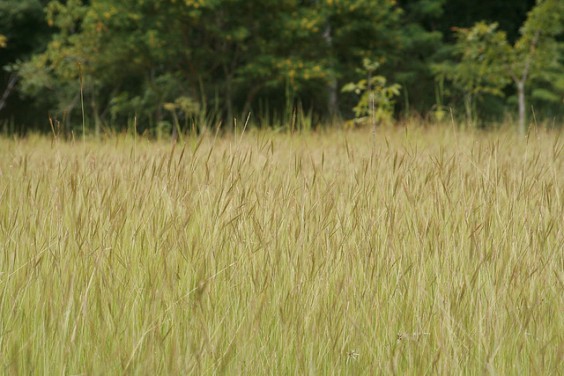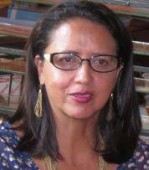In the Middle of the Field of Impunity in Honduras
by Dina Meza translated by Katherine Wingfield-Dobbs / November 10, 2015 / No comments

Image via Flickr user: Carlos Adampol Galindo
The once-plentiful field of Honduras has become destroyed by the pests of corruption. Can the Honduran people’s innovations salvage it?
As I write this column, I imagine a planted field where pests can get in and destroy the crops as they grow. At that moment, it is crucial not to allow the pests to establish themselves; accomplishing this is difficult, but not impossible.

- Honduras has one of the world’s highest murder rates. It is also one of the most dangerous countries to practice journalism, ranking 129th out of 180 in the 2014 World Press Freedom Index. Journalists are regularly threatened, attacked, and killed for their work. The Honduran government fails to punish those who use violence against reporters, essentially granting them impunity. This space will be dedicated to examining the lack of protection for Honduran journalists exercising their profession. Topics will include the use of state-sponsored advertising as a mechanism to reward or punish publications, and censorship and self-censorship as hindrances to democratic progress.

- Born in Cofradía, Honduras, Dina Meza has been recognized by PEN International, Amnesty International, Index on Censorship and Reporters without Borders for her work as a journalist and human rights advocate. Currently, Dina is the driving force behind the creation of Honduras PEN Centre. In 2013, she wrote “Reign of Terror,” an in-depth report on threats to Honduran journalists for Index on Censorship’s magazine. In 2014, she was named one of Reporters Without Borders’ “100 Heroes and Heroines of Information.”
In Honduras, the people have tended their fields for decades. But every year, the pests are larger. So we neglect our surroundings. We stay in the center, concentrating on the sowing, and neglect that which we see as insignificant. Impunity, corruption, poverty, crimes against political dissidents, and, in recent years, organized crime and drug trafficking pass through this gap.
Nowadays the planted field is a minefield, all these pests among the crops: competition for natural resources, the depressed economy, and the people’s attitudes serve to destabilize the sowers, to take away their hope. It is a difficult moment for Honduras — a political and economic crisis, and also a human rights crisis — that has provoked the majority who want a bountiful harvest.
The goal is to destroy the pests; they must leave the field and allow the crops to remain pure. Yet, we cannot purge the fields of pests in an environment of filth, an environment that continues a total siege against the sowers — the Honduran people. We cannot lose our focus: to end corruption; to punish those responsible for serious violations of human rights and the predators of freedom of expression and information; and to recover the national wealth so that it can be distributed equally. We must never stop chasing this utopia in order to make it a reality.
The unpunished believe they are indestructible. They believe they can keep deceiving the people, who despair as they see no light at the end of the tunnel. Those who keep Honduras in conditions of misery and poverty have been so strong that now they are the ones who do not protect their crops against contamination.
For many decades the Honduran people have suffered greatly. They saw their wealth disappear and doled out between a few families, forcing millions of people into poverty.
In the 1980s, the doctrine of “national security” appeared and made its home in the field full of crops. The United States, conspiring with the military and other powerful groups, saw the Central American revolutionary movements as a threat that could spoil their party. The military and political elites allied themselves with the US and their geopolitical strategy, then proceeded to kill, disappear, torture, spy on, and make profiles of those opposed to that strategy.
The families of the victims fought against all the smear campaigns directed towards dissidents, campaigns that called the dissidents terrorists who fled to Russia or Cuba. The unpunished believed that their strategy of misinformation would succeed, but instead truth triumphed – the missing activists were in Honduras — not alive, but in hidden graves, many of which still remain undiscovered.
Impunity covered the countryside. Honduran society, eager for change, pressed for the establishment of institutions that would punish those responsible. Thus the government create the Public Ministry (el Ministerio Público) and the National Commission for Human Rights (el Comisionado Nacional de Derechos Humanos). However, the political and economic elites, as well as the military human rights violators, contaminated this planting by establishing their reign within these institutions to cover themselves and avoid punishment.
With the coup d’état in 2009, control of these institutions alone could no longer quiet the people. The military returned state institutions to national control, entering into complicity with the political and economic class, to control and re-militarize Honduras — once more in collusion with the United States, a country with an ominous history of ruining the country.
We see the US ambassadors in Honduras so empowered by the tasks entrusted to them that they become extremely brazen: involving themselves in national institutions, even making decisions. In the case of the last ambassador, Lisa Kubiske, in her mandate she exercised control of Honduras. Today, Ambassador James D. Nealon follows her example and meddles in even the smallest thing in the country.
But the evil is not eternal. The Honduran people still have faith and create different ways to trap the pests. It just requires patience; patience to watch over the planted field so the pests can no longer get in, and patience to trap those that are inside and confine them with no opportunity to escape. Unity is the key!




